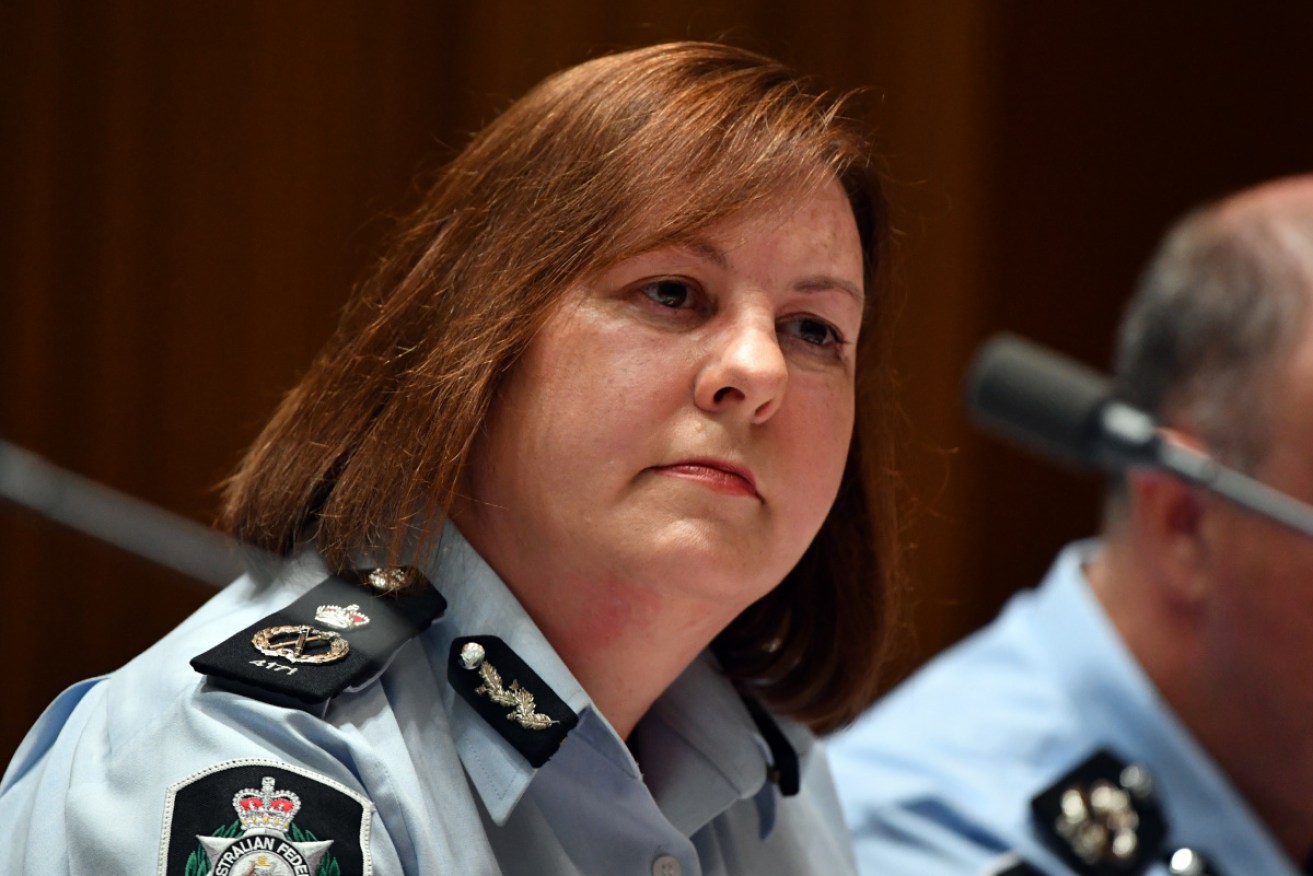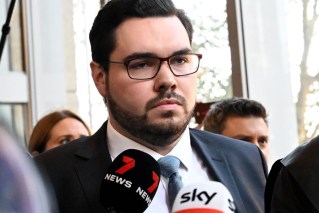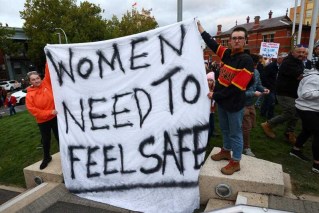AFP: Leak probe hamstrung by ministers’ refusal on statements


Australian Federal Police Deputy Commissioner National Security Leanne Close at Senate estimates hearings on Monday. Photo: AAP
The Australian Federal Police believed there was enough evidence to lay charges over the leak of an AWU police raid but were hamstrung by the lack of witness statements – including from government ministers.
In sensational evidence to Senate estimates, the AFP has also revealed it was believed that some evidence was destroyed in relation to the investigation.
It did not disclose who it was referring to.
However, for the first time the AFP confirmed that ministers Senator Michaelia Cash and Michael Keenan declined to provide witness statements “at least twice” to its investigation into the leaks.
“We wanted to have the opportunity to speak to them both,” AFP deputy commissioner Leanne Close said.
The leaks followed AWU raids in October 2017, which were designed to target donations to GetUp! during the period Opposition Leader Bill Shorten led the union.
The Federal Court has heard evidence this week in a civil trial that the media was tipped off after a staffer at the Registered Organisations Commission, Mark Lee – who was about to go to work for Senator Cash – tipped off his new boss and chief of staff Ben Davies.

Michaelia Cash has been in the spotlight over the leaks about the AWU raids. Photo: AAP
Mr Davies then told media adviser David de Garis, who also told a staffer of Mr Keenan, who was then justice minister, before the pair tipped off the media. As a result, the media turned up at the AWU offices for the raid before the police.
In evidence to Senate estimates, AFP Commissioner Andrew Colvin and Ms Close have revealed it was the Director of Public Prosecutions who made the call not to lay charges over the leaks.
The AFP had prepared a brief of evidence against an unnamed person over the leaks, but the Commonwealth DPP declined to prosecute.
“We felt there was sufficient evidence in the brief of evidence. However, it was lacking some witness statements and so, on that basis, the Commonwealth DPP advised that there were no reasonable prospects for a conviction in this matter,” Ms Close told estimates.
My question is to the Prime Minister.
Can the Prime Minister confirm that two of his Ministers refused to provide witness statements to an Australian Federal Police investigation?
Morrison refuses to answer the question. #auspol pic.twitter.com/DqhNBDqv3q— Brendan O’Connor (@BOConnorMP) 18 February 2019
During the exchange, Labor probed the AFP over whether the potential destruction of evidence also impeded the investigation.
“What did your investigation reveal regarding the destruction of evidence? For instance, text messages, emails or anything like that by anyone?’’ Labor’s Murray Watt asked.
“Did you find any evidence that evidence relating to the leak may have been destroyed?”
Ms Close then replied, “We understood that could have been the case in some instances, yes.”
Asked whether this involved the destruction of evidence by ministerial staff, Ms Close replied: “It’s impossible for me to speculate today who that may or may not have been. I also did not hear the evidence in the trial.”
Last week, Mr de Garis told the Federal Court he had deleted some text messages. But the AFP did not detail who might have destroyed evidence in the hearings on Monday.
Earlier, Commissioner Colvin told the hearing that the AFP had “conducted a thorough and professional investigation”.
“This is an issue of grave concern to me when AFP operational activity is inappropriately disclosed,’’ he said.
As well as impacting on our operations, these disclosures also jeopardise the safety and security of AFP officers.
“The AFP undertook a thorough investigation into the unauthorised disclosure of our operational activity, and compiled the strongest brief of evidence we could, which was then referred to the Commonwealth DPP.
“In this case the Commonwealth DPP determined that, despite our best efforts, the brief did not have sufficient prospects of success for them to prosecute. Under those circumstances, the AFP could not in good conscience lay charges.
“The AFP wasn’t present at the Federal Court last week but we have seen the media reports. I understand from that reporting that the court has used section 128 of the Evidence Act to require witnesses to give evidence and offer them protection against self-incrimination.
“This is not an option open to police in a criminal investigation. Ultimately, we cannot compel people to provide us with statements.”
Ms Cash will appear at Senate estimates later on Monday.








